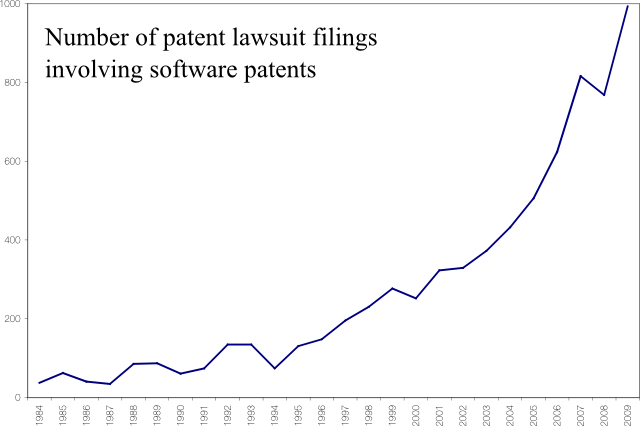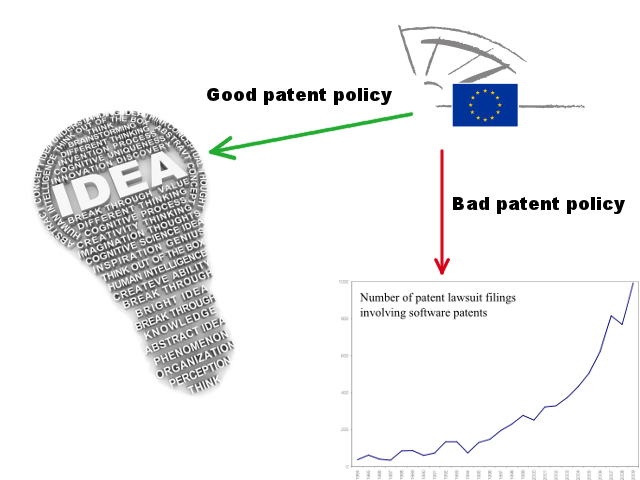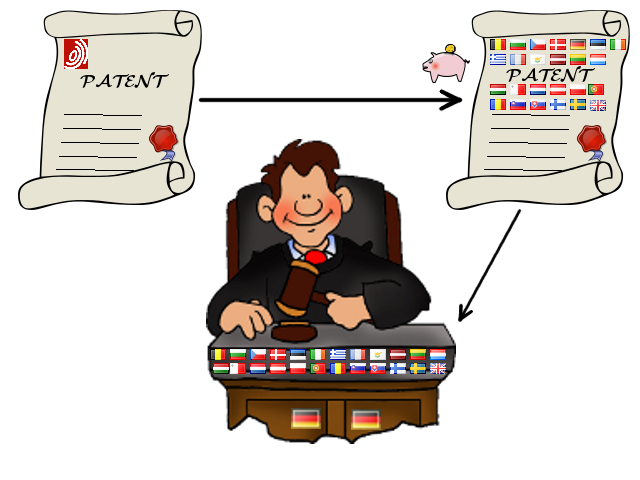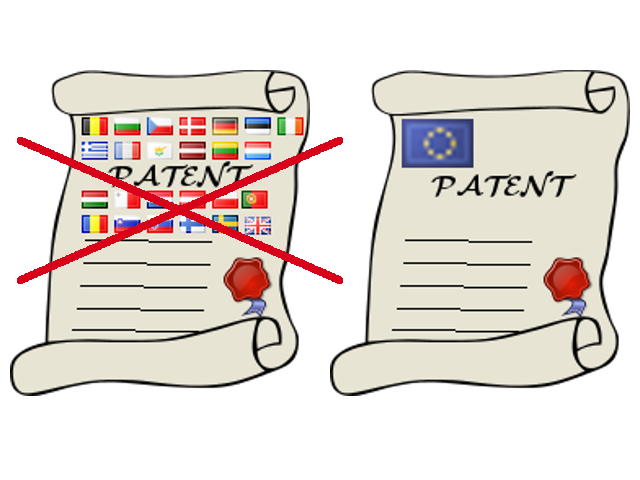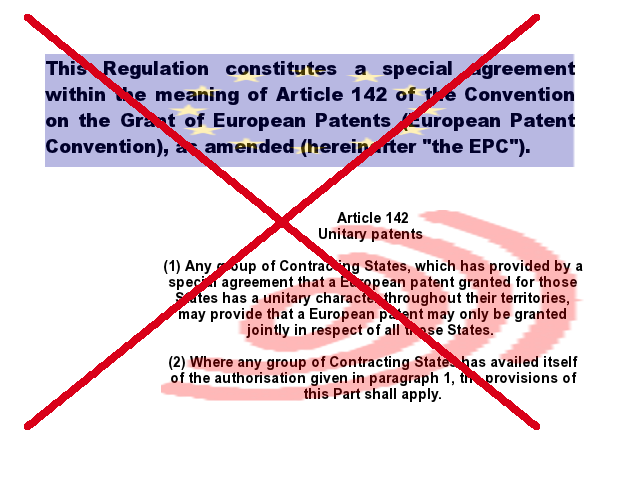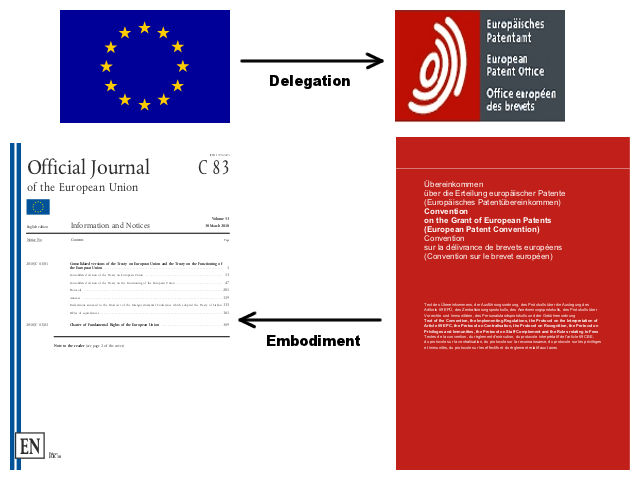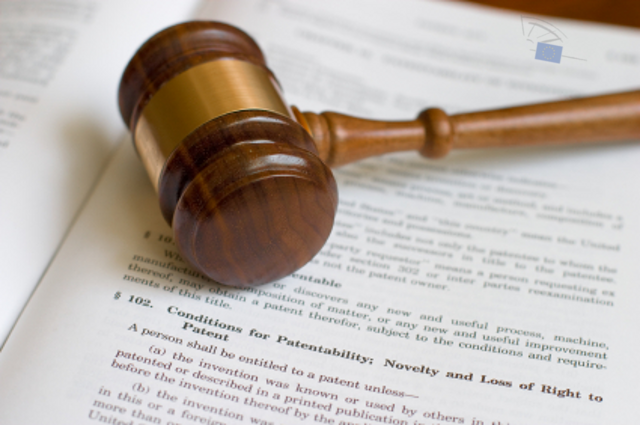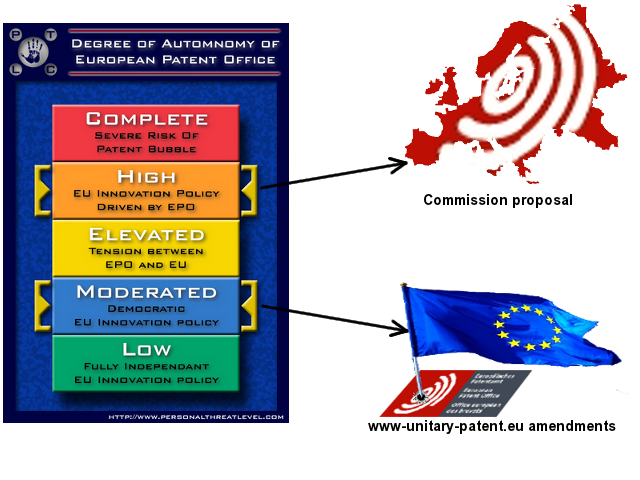

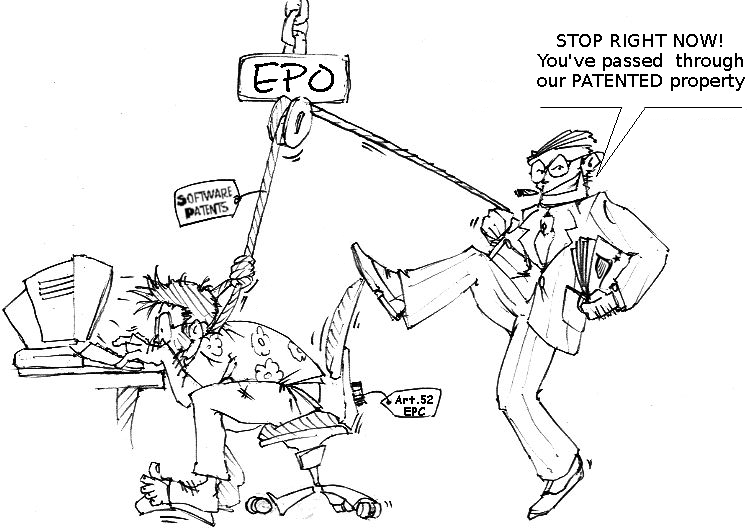
A patent isn’t innovation. It’s the right to block someone else from innovating.
Patents are government-granted monopolies. We have them to reward innovation, but that’s not happening here.
If software patents were really doing their job, you would expect that they would encourage more innovation, and they didn't in fact, there's evidence suggesting just the opposite.
Eric Maskin,
Nobel-prize-winning-economist

The following in particular shall not be regarded as inventions […] programs for computers
A [computer-implemented invention] (even in the form of a computer program) that can provide a [“further technical effect” which must go beyond the inherent technical interactions between hardware and software] can be patentable […]. In this case, it would be recognised as providing a technical solution to a technical problem.
http://www.epo.org/news-issues/issues/computers/software.html
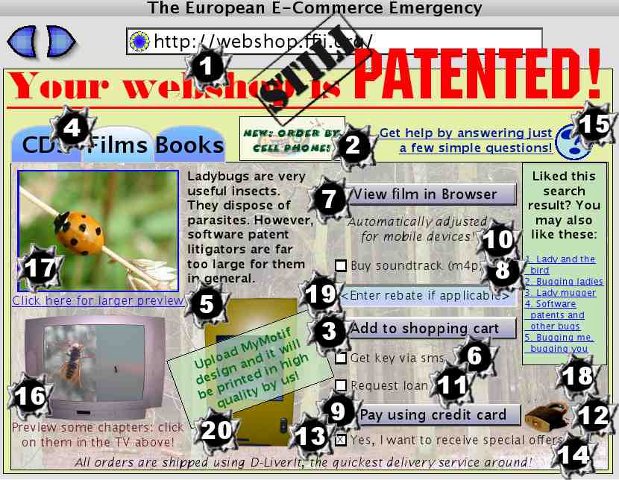
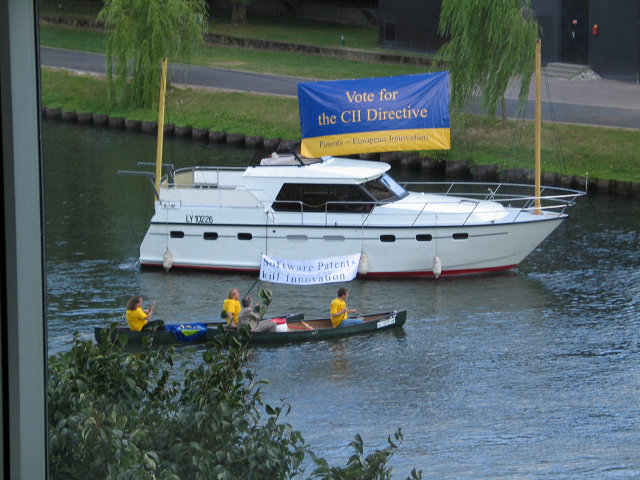


When judiciary-driven legal development meets its limits, it is time for the legislator to take over.
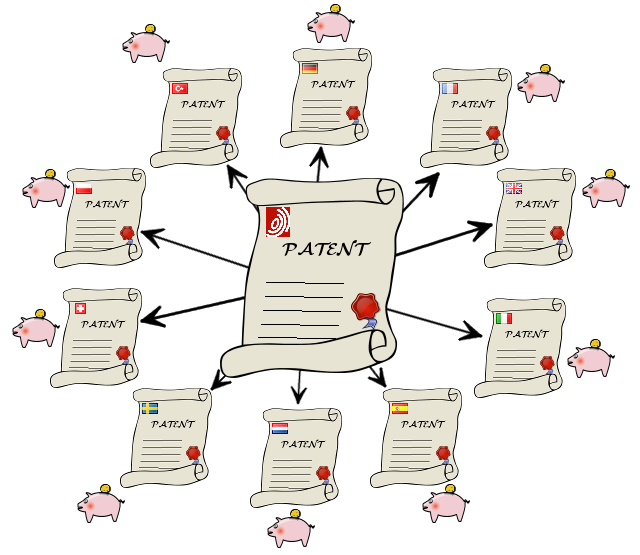
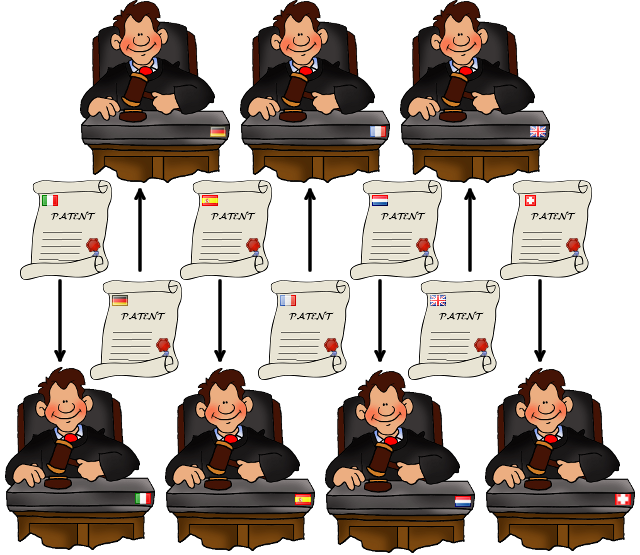
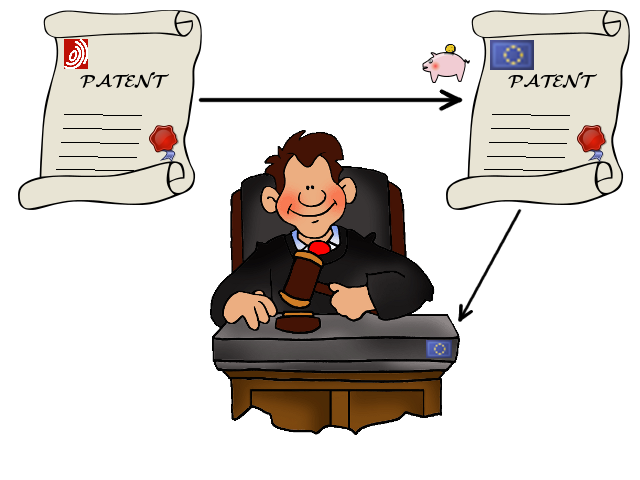

The envisaged agreement […] would deprive courts of Member States of their powers in relation to the interpretation and application of European Union law and the Court of its powers to reply, by preliminary ruling, to questions referred by those courts and, consequently, would alter the essential character of the powers which the Treaties confer on the institutions of the European Union and on the Member States and which are indispensable to the preservation of the very nature of European Union law.
